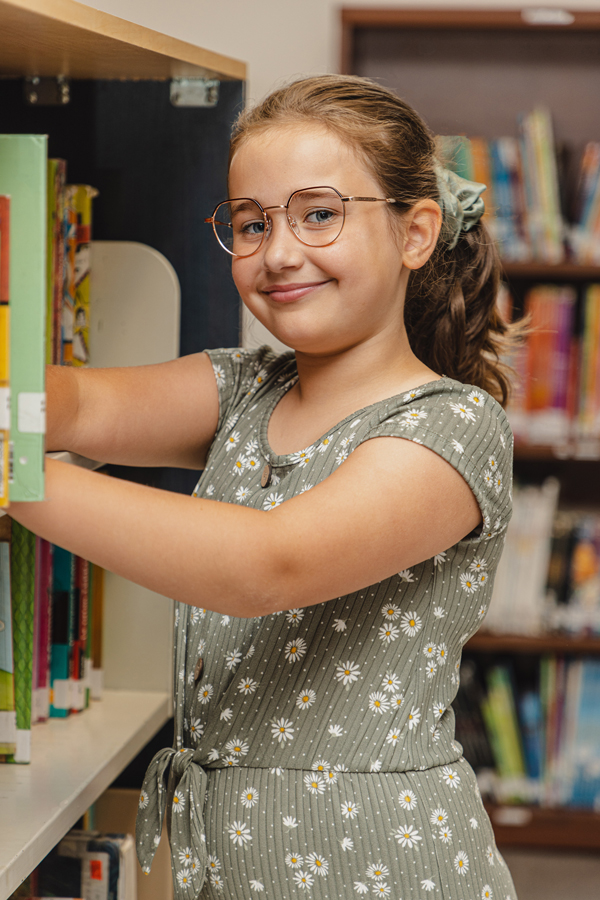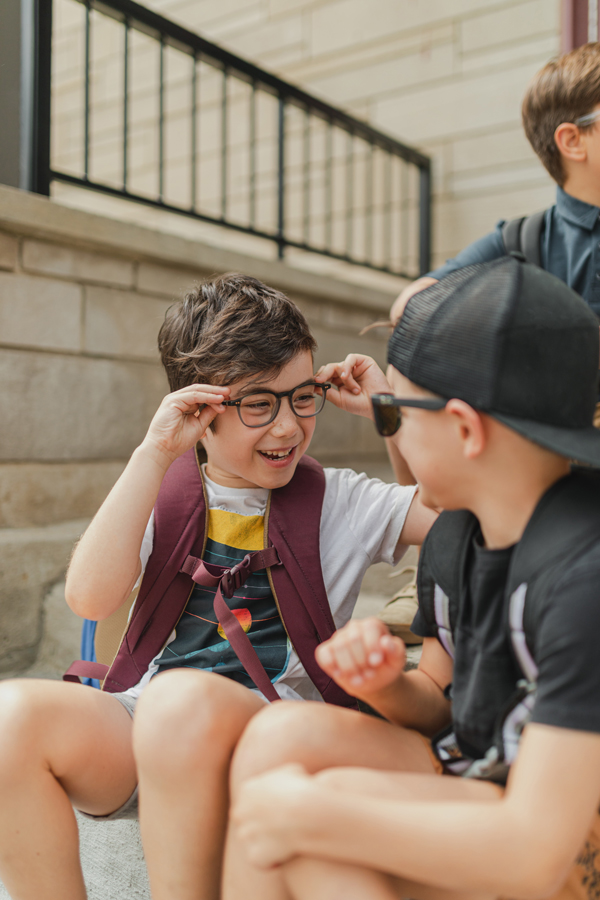The Hidden Clues: How to Spot if Your Child Needs Glasses

Is your child struggling to see clearly? Learn how to spot the hidden clues that indicate if your child needs glasses. Early intervention is key to ensuring their vision health and overall well-being.
27 February 2024
Has your child been suddenly sitting a little too close to the TV or squinting a bit too much ? These could be signs that they need glasses. Undetected vision problems can affect your child’s every day performance. It’s therefore important to be able to know what to look out for when it comes to their vision health. In this article, we will look at the hidden clues that can help you spot if your child needs glasses.
Are vision problems common in children ?
Vision problems are more common than one may think in children. Parents strive to ensure the health and well-being of their children everyday, from diet to exercise. Vision is no less as they are more common and likely to go unnoticed. This can affect the child’s development and learning abilities. It’s therefore crucial to recognize the signs associated with vision problems.

What are the hidden clues?
Here are the signs that your child may have problems with their vision:
1. Squinting or frequent eye rubbing
If your child is constantly squinting or rubbing their eyes, this could be the sign of potential vision health problems. Squinting helps focus the light and temporarily improves clarity, which means your child is perhaps trying to compensate for poor vision. Eye rubbing is therefore a sign of eye fatigue associated with constant squinting.
2. Complaining of headaches or eye pain
If your child begins to complain of constant headaches or eye pain while reading, writing or even at the end of the day, this could be due to frequent eye strain due to poor vision.
3. Holding things too close to the face
If suddenly you begin to notice your child holding books, ipads or objects too close to their face in an attempt to see better, this can be a big indicator of eye problems. They are attempting subconsciously to bring items closer to their focal range and see things clearly.
4. Difficulty seeing up close or from far away
You may start to notice that your child is having difficulty focusing on things up close like reading or writing, or even seeing clearly at a distance (eg. the board at school). This is a sign that your child may need glasses or has visual challenges.
5. Excessive tearing or sensitivity to light
Some children may be exhibiting a sensitivity to light, which can worsen their visual discomfort, leading to excessive squinting. Eye fatigue from constant squinting then can lead to more tearing because the eyes are overworked. This vicious circle of symptoms can be due to poor vision health.
6. Decline in academic performance
Eyesight problems can take a toll on a child’s academic performance. If you begin to notice a change in their behavior, where they are more irritable or avoid reading, and thus a decline in their school work, it may be due to eyesight issues.
What to do if your child exhibits eyesight symptoms ?
Now that you know what to look out for when it comes to signs of eyesight difficulties, it’s time to take the next steps in eye care for your child. Early detection is key in maintaining your child’s overall eye health. Booking an eye exam is the thing to do. During the eye examination, the optometrist will assess your child’s visual acuity, eye tracking and eyes’ ability to focus by performing different tests to assess the severity of nearsightedness, farsightedness, astigmatism or any other vision health issues. It’s imperative to communicate any concerns you may have in order to properly diagnose the eyesight problem and find the ideal solution to resolve it.

Recognizing the signs of eyesight issues in a child is crucial and addressing them promptly is imperative. Wearing glasses can greatly aid a child’s quality of life and prevent performance difficulties at school. Booking an appointment with eye care specialists like the team at LE LUNETIER is the first step. They can conduct a comprehensive eye examination to assess your child’s vision and detect any underlying issues that may needcorrection with glasses.